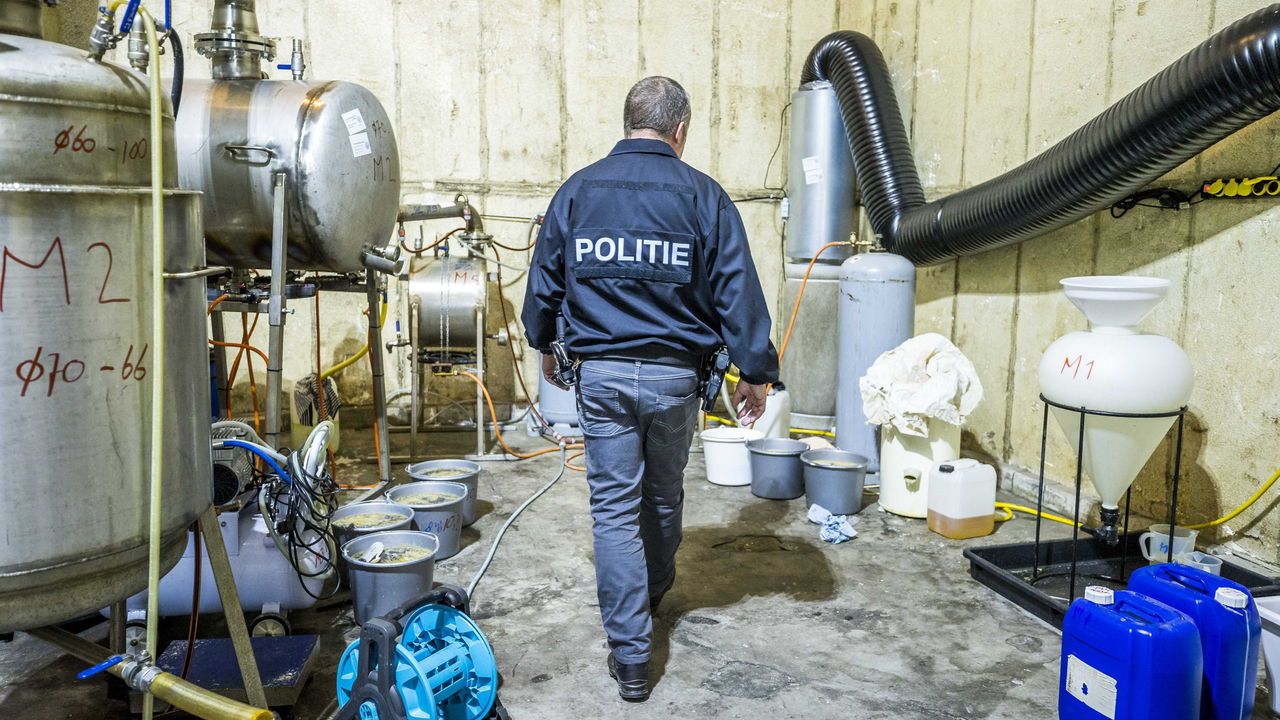European gangs are getting better at making their own illegal drugs
The faster the police crack down, the faster they adapt to new methods

WHEN SPANISH police looked into a gang from the Canary Islands last year, they unwittingly landed on something big. In an unassuming house in Galicia, in north-western Spain, specialist teams were working around the clock to produce up to 200kg of cocaine a day. Two gangs, one Colombian, the other Mexican, had paid around €2m ($2.1m) to set up the lab, which the Spaniards supplied with cocaine base. It was only the second cocaine lab found in Spain. So far it is the largest ever discovered in Europe.
Cocaine was rarely produced in Europe until 2018. Increased coca production in Latin America and improved police surveillance have prodded some criminals into changing tack. While most still import the finished product, crooks increasingly get cheaper products like cocaine base, then turn them into cocaine hydrochloride (a white powder) using chemicals in labs. Many more extract cocaine that has been chemically hidden for shipment in the likes of charcoal, clothing and sugar. In 2022 39 cocaine labs were dismantled in the EU, up from 15 in 2019.
Illegal drug production in Europe is nothing new. Belgium and the Netherlands have exported amphetamines and MDMA (ecstasy) worldwide since at least the 1990s. Cannabis has long been grown across the continent. But in the past decade drug production in Europe has risen fast, not just for cocaine. Last year a record number of labs, most of them for synthetic drugs, were dismantled in Poland, Belgium and the Netherlands. And the labs’ size and sophistication have shot up, says Dr Rita Jorge of the European Monitoring Centre for Drugs and Drug Addiction (EMCDDA), an EU agency.
This article appeared in the Europe section of the print edition under the headline “Home-made highs”
Europe June 29th 2024
- Emmanuel Macron’s centrists are facing a disastrous first-round vote
- European gangs are getting better at making their own illegal drugs
- Death and destruction in a Russian city
- Finland’s shrinking high schools are importing pupils from abroad
- Can António Costa make a success of the world’s hardest political gig?
More from Europe

Russia’s vast stocks of Soviet-era weaponry are running out
It may have to scale back its offensive in Ukraine

Half Ukraine’s power is knocked out; winter is coming
Ingenuity can get you only so far

France is desperately searching for a government
Party rivalry threatens deadlock before compromise
